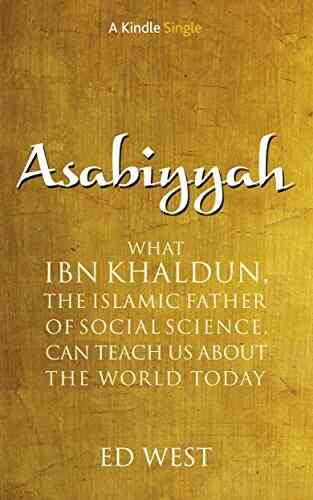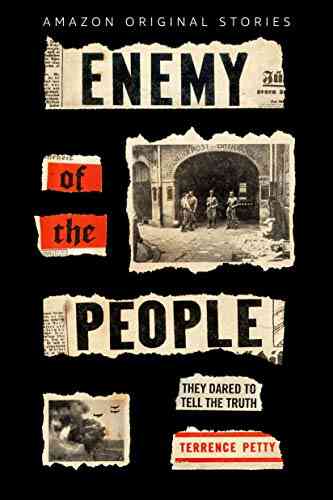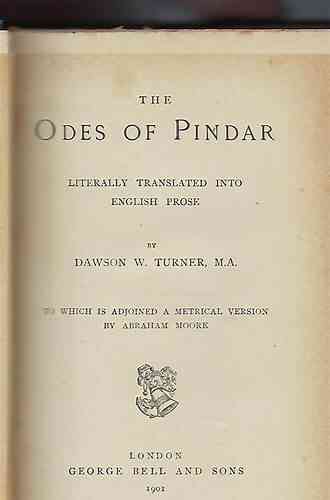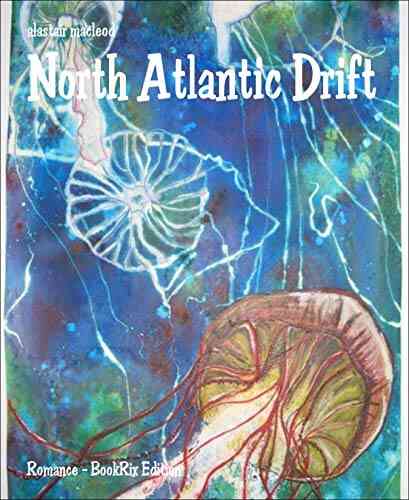What Ibn Khaldun The Islamic Father Of Social Science Can Teach Us About The

When it comes to understanding society and human behavior, one name stands above the rest - Ibn Khaldun. Born in the 14th century, Ibn Khaldun was an Islamic scholar, historian, and philosopher who is considered the father of social science. His insights and theories are still highly relevant today, and there is much we can learn from his teachings.
Ibn Khaldun was born in Tunis in 1332 and held various positions in the government throughout his life. However, it was his work as a historian and sociologist that truly made him a legend. He wrote a comprehensive historical study called "Muqaddimah" or "The " in which he presented his groundbreaking ideas on society, economics, and politics.
One of the key concepts Ibn Khaldun introduced was the idea of asabiyyah, which can roughly be translated as social solidarity. According to Ibn Khaldun, societies go through cycles of rise and decline, and the strength of their asabiyyah determines their success. He argued that strong social cohesion and a sense of collective identity are crucial for the growth and stability of a civilization.
4.6 out of 5
| Language | : | English |
| Text-to-Speech | : | Enabled |
| Enhanced typesetting | : | Enabled |
| Word Wise | : | Enabled |
| Lending | : | Enabled |
| File size | : | 2946 KB |
| Screen Reader | : | Supported |
| Print length | : | 37 pages |
Ibn Khaldun also emphasized the importance of understanding the socioeconomic factors that shape society. He recognized that economic factors, such as trade and agriculture, play a significant role in shaping the social structure and power dynamics of a society. His work laid the foundation for modern social sciences, particularly sociology and economics.
Furthermore, Ibn Khaldun stressed the significance of studying history to understand the present and predict the future. He believed that history repeats itself, and by analyzing past events and patterns, one can gain valuable insights into the behavior of societies and nations. This historical approach to social sciences laid the groundwork for the development of the discipline we know today.
Another aspect of Ibn Khaldun's work that remains relevant is his understanding of power and politics. He recognized the impact of political institutions and leaders on the stability and progress of a society. Ibn Khaldun also highlighted the role of morality and ethics in governing societies. He argued that a just and ethical leadership is crucial for the well-being and prosperity of a civilization.
Ibn Khaldun's work had a significant influence on Western thinkers during the Renaissance and Enlightenment periods. His ideas were translated into various European languages and contributed to the development of social and political theories in the West. Today, he is recognized as one of the greatest intellectuals in history, and his contributions to social sciences continue to inspire scholars around the world.
So, what can we learn from Ibn Khaldun? Firstly, the importance of social cohesion and collective identity cannot be overlooked. In an increasingly interconnected and diverse world, fostering strong bonds within societies is crucial for their stability and progress. Secondly, understanding the socioeconomic factors that shape society is essential. By studying and analyzing these factors, we can gain a deeper understanding of our own world.
Furthermore, Ibn Khaldun reminds us of the enduring significance of history. By studying the past, we can better comprehend the present and make informed decisions for the future. Finally, his emphasis on ethical leadership is pertinent even today. Good governance and moral leadership are fundamental for the well-being and success of any society.
, Ibn Khaldun's ideas and insights into society, economics, history, and politics are still highly influential today. His work as the Islamic father of social science laid the foundation for modern disciplines such as sociology and economics. By studying his teachings, we can gain valuable knowledge and apply it to our understanding of the world. Ibn Khaldun's contributions continue to shape and inspire scholars and thinkers worldwide.
4.6 out of 5
| Language | : | English |
| Text-to-Speech | : | Enabled |
| Enhanced typesetting | : | Enabled |
| Word Wise | : | Enabled |
| Lending | : | Enabled |
| File size | : | 2946 KB |
| Screen Reader | : | Supported |
| Print length | : | 37 pages |
A quarter of a century after the end of Communism swept away the ideological conflict of the ‘short 20th century’, a new world is once again taking shape, this time in the Middle East. But what does the crisis in the region, and its refugee exodus into Europe, signify for the future of the world? And why has the noble dream of nation-building failed? Focusing mainly on religion, ideology or economics, most analysis ignored one crucial factor: asabiyyah, or group feeling, something outlined six and a half centuries ago by a largely ignored Arab historian called Ibn Khaldun.
Ibn Khaldun is largely overlooked in the west, yet on top of his claim to being one of the greatest historians of all time can rightfully be viewed as the father of social science and sociology. His book, The Muqaddimah, dealt with a range of subjects from science to economics to the rise and fall of empires, which he attributed to ‘the asabiyyah cycle’ – the evolution of societies from barbarism to civilisation to decadence, which he attributed to the strength of ‘group feeling’.
Even today asabiyyah is an essential component of human society and development, and is the key to understanding why some states fail and others succeed, why democracy works sometimes but often not, and why the nation-state will remain the foundation of human society. Whatever happens from now on, the outcome of the 21st century will be dependent on asabiyyah, which remains the fundamental reality of human existence.
Do you want to contribute by writing guest posts on this blog?
Please contact us and send us a resume of previous articles that you have written.




















Light bulbAdvertise smarter! Our strategic ad space ensures maximum exposure. Reserve your spot today!
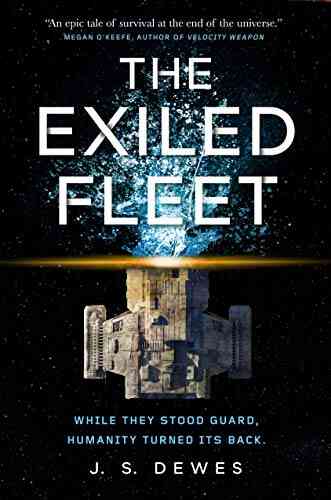
 Dominic SimmonsThe Exiled Fleet: The Divide - A Thrilling Tale of Betrayal and Redemption
Dominic SimmonsThe Exiled Fleet: The Divide - A Thrilling Tale of Betrayal and Redemption Mark MitchellFollow ·4.6k
Mark MitchellFollow ·4.6k Ruben CoxFollow ·14.7k
Ruben CoxFollow ·14.7k Richard WrightFollow ·16.3k
Richard WrightFollow ·16.3k Andy HayesFollow ·13.6k
Andy HayesFollow ·13.6k Curtis StewartFollow ·6.7k
Curtis StewartFollow ·6.7k Cole PowellFollow ·12.1k
Cole PowellFollow ·12.1k Albert ReedFollow ·9.7k
Albert ReedFollow ·9.7k Dean CoxFollow ·13.6k
Dean CoxFollow ·13.6k

 Dawson Reed
Dawson ReedThe Ultimate Guide: All You Have To Think About Getting...
Are wedding bells in your future?...

 Douglas Adams
Douglas AdamsUnleash Your Inner Hero: The Path of Vengeance Second...
Have you ever wondered what it would be...

 Aleksandr Pushkin
Aleksandr PushkinCrochet Pattern: Elegance Headband - Easy Headband for...
Are you tired of searching for the perfect...

 Patrick Hayes
Patrick HayesFulfilling Family Life Bite Sized For Successful Families
Having a fulfilling family life is something...

 Emilio Cox
Emilio CoxAn Epic Tale Of The Chinatown Underworld And The American...
In the heart of bustling cities, hidden...

 Luke Blair
Luke BlairMy Muse Florence: Discovering the Heart of Italy Through...
By: [Your Name] | Published: [Publication...

 Milan Kundera
Milan KunderaDrone Political Technothriller: Miranda Chase -...
Prepare yourself for a thrilling journey...

 William Wordsworth
William WordsworthUnveiling the Riveting Tale of Cold Blooded Kindle Single...
Have you ever come across a book that...

 Andres Carter
Andres CarterNever Blend With The Wind: The Dangers of Conforming to...
Imagine a world where everyone looks, acts,...

 Abe Mitchell
Abe MitchellUnleashing the Beast: The Untold Story of Killer...
Prepare yourself for a heart-pounding journey...

 E.M. Forster
E.M. ForsterLondon Assurance Oberon Modern Plays: A Tale of Wit,...
In the bustling heart of London's...
4.6 out of 5
| Language | : | English |
| Text-to-Speech | : | Enabled |
| Enhanced typesetting | : | Enabled |
| Word Wise | : | Enabled |
| Lending | : | Enabled |
| File size | : | 2946 KB |
| Screen Reader | : | Supported |
| Print length | : | 37 pages |


